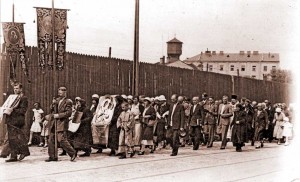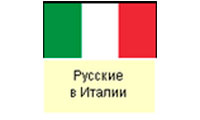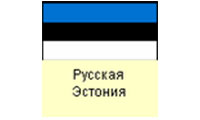The Old Believers of Riga
Arnold Podmazov
Confessional Characteristics of Old Believers in Latvia
The Old Believers in Latvia represent the Bespopovtsy (‘priest-less’) branch of the Old Believers’ movement, i.e. the branch which does not have priesthood. The absolute majority of contemporary Old Believers are Pomorians (Bespopovtsy who practice the rite of matrimony). Earlier, there have been in Latvia also Old Believers-Fedoseyevians (in other terminology: Old Pomorians, the Bespopovtsy who do not practice matrimony). Both movements do not have church hierarchy, and, as a result, they acknowledge only two of the sacraments, Baptism and Confession. According to the Orthodox tradition, these two sacraments could be performed also by laypersons, but in actual practice these are customarily performed by spiritual fathers, nastavniki (‘teachers’).
The name “Pomorians” comes from Pomorye, a common designation of the Russian North (the territory from the North Urals to the banks of the White and the Kara Seas). Even before the Schism, the sacraments of Baptism and Confession were often celebrated there by laypeople “by reasons of necessity”, i.e. insufficient number of priests. This practice led to a formation of a special “Typicon” (a systematized set of rubrics) regulating the celebration of services without a priest, in accordance with the canonical Orthodox tradition. Therefore, regardless of their place of residence, those Old Believers who have rejected priesthood and who follow the Pomorian Typicon, were called the Old Believers of the Pomorian tradition.
The name “Fedoseyevians” comes from the founder of this branch – Feodosy Vasilyev (1660s–1711). The Old Believers-Fedoseyevians, unlike Pomorians (who had the special ritual of matrimony performed by a spiritual father) did not practice marriage rituals, nor did their services include a petition for the civil authorities. Likewise, these traditions strongly prohibit to pray and to eat together with people of different religious faith.
The Bespopovtsy communities do not have ecclesiastical hierarchy. Instead, they have nastavniki, spiritual teachers or spiritual fathers, who lead the service, perform sacramental rites and possess high authority in matters of religious and moral life. Such “spiritual father” is a lay person who is blessed for this ministry by his own spiritual father and several other spiritual fathers at the general assembly of the entire community. The duties of the “spiritual fathers” of the Pomorians were specified by the Regulations approved by two All-Russian Councils of Pomorian Christians in 1909 and 1912.
The Bespopovtsy tradition of Old Believer movement emerged soon after the Schism under the influence of radical eschatological views of those who continued to follow the rites of the pre-reform Orthodoxy. The ideas about the coming of “the latter days” and of “the kingdom of Antichrist” became the main justification for abolishing of the institution of priesthood that had lost the grace and apostolic succession. Contemporary Pomorian Old Believers emphasize that the absence of priesthood does not signify the rejection of the hierarchical principle and unity in the Church – rather, it came as a result of historical conditions.
Religious traditions of the Pomorians and the Fedoseyevians influenced the historical development of the Old Believers’ tradition in Latvia and Riga. During the 19th century, the Riga Grebenshchikov Community saw the gradual transformation of Fedoseyevians into Pomorians. “Riga Fedoseyevians” had many common features with Pomorian Old Believers who recognized matrimony, but also retained some liturgical characteristics specific for the Moscow Pomorian Old Believers. Today, both Riga Grebenshchikov Community, as well as Riga Theophany Community, in the canonical sense belong to the Old Orthodox Pomorian Church of Latvia, headed by the Central Council and the Spiritual Commission (since 1989). The activities of the Old Orthodox Pomorian Church of Latvia are regulated by its Statute. The legal status of the organization is determined by Law on the Old Orthodox Pomorian Church of Latvia (adopted June 20, 2007, in effect since May 1, 2008).
The Pomorian Old Believers’ faith has preserved the doctrine and liturgical rites of the pre-reform Russian Orthodox Church, which it managed to preserve in the circumstances when these communities were deprived of priesthood. This faith is grounded in the Holy Scriptures (the canonical books of the Old and New Testaments) and in the Holy Tradition (Apostolic canons, the canons of the Ecumenical and Local Councils, the canons of the Church Fathers). The ecclesiastical life of Pomorian Old Believers is regulated by the canonical regulations of the Nomocanon, the decisions of the Local Councils of the Russian Orthodox Church passed prior to the 17th century reform, and the decisions of the All-Russian Synods of Pomorian Christians of 1909 and 1912.
The justification of the Old Believers’ position is to be found in the voluminous manuscript “Pomorian Answers” (1723), compiled by Andrey Denisov (1674–1730), one of the founders of the Vyg Settlement (ca. 1694–1857). The book contains answers to the questions of the Holy Governing Synod (in 1721–1917, the highest governing body of the Russian Orthodox Church in lieu of the abolished Patriarchate). This work of apologetics, written by Old Believers of the Vyg settlement (one of the most respected centers of Bespopovtsy Old Believers) gives a thorough explanation of the differences between Old Believers and the official Church, as well as of the rituals of the Pomorians. “Pomorian Answers” is a book highly valued by the Old Believers of all denominations. It is found in many manuscript collections, including the ones of Riga Old Believers. “Pomorian Answers” is a great literary monument of the times that includes one of the first attempts of the paleographic analysis of written sources in Russia.
Content
- Introduction
- Schism and “Old Belief”
- Beginnings of the Old Believers on the territory of Latvia
- Confessional Characteristics of Old Believers in Latvia
- Old Believers’ Church Building and Liturgy
- Books and Book Culture
- Iconographic Traditions of Riga Old Believers
- Pomorian Old Believer Traditions of the Art of Copper Casting
- Old Believer Churches in Riga
- Old Believer Societies in Riga
- Old Russian Residents of Riga and Old Believers in the 18th century
- The Years of Prosperity and the Years of Misery: Riga’s Old Believers in the 19th Century
- Riga Old Believers at the Turn of 19th and 20th Centuries
- Riga Old Believers in the Independent Latvia (1918–1940)
- Riga Old Believers During the Soviet Period (1940–1941, 1944–1991)
- Riga Old Believers after the Restoration of Latvia’s Independence
- Photogallery
- About the Project. The Old Believers of Riga: 250 Years of Cultural Historical Experience







